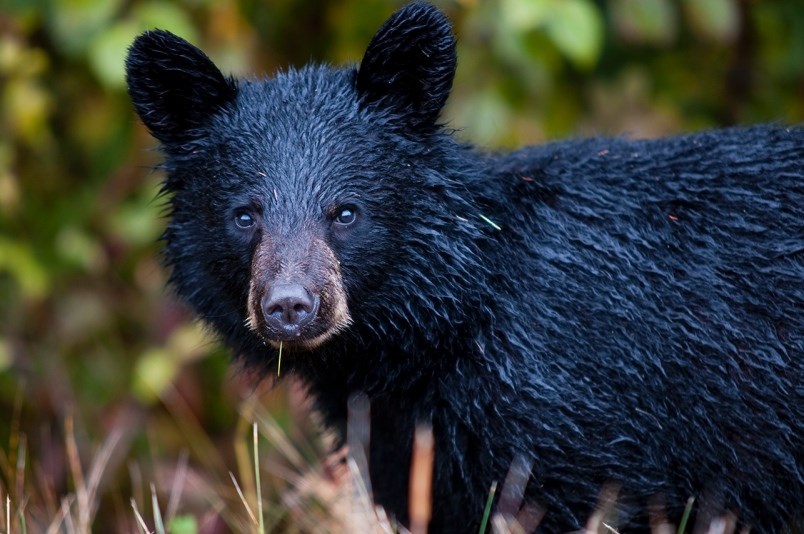Conservation officers are once again asking the public to secure their garbage and pick the fruit from their trees after a black bear was killed for attacking two people while aggressively protecting its food source.
“Unfortunately, this bear didn’t meet our policy of relocation. He was protecting a non-natural food source, including fruit trees, and he would have come back to the same area,” said Sgt. Simon Gravel, who works for the Sea to Sky Corridor’s conservation service.
On the evening of Oct. 6, the male bear charged at a couple sitting by a side door to their house in Garibaldi Estates south of Garibaldi Way near Diamond Head Road. It hissed at them and scratched the woman’s leg and the man’s shoulder, but neither required stitches.
They were lucky to get away with such minor injuries, said Gravel.
A trap was set out and the bear was caught and killed the next day.
“In Squamish, we have a high cultural tolerance of black bears. It can be hard to understand the link between seeing a bear in our fruit trees to that same bear viewing the backyard as its food source,” said Gravel.
He said the bear, which was between five and 10 years old and not tagged, was particularly aggressive around the food because of its need to plump-up before hibernating soon.
More than 20 bears are being tracked throughout Squamish’s urban neighbourhoods as they compete for food sources. The berry season was not strong this summer and there wasn’t a large salmon run, Gravel noted, so fruit trees and garbage are bears’ easiest options.
They are even learning how to break the clasps on garbage totes.
If a similar attack happened out in the backcountry then the bear might not have been killed since it was protecting its natural food source instead of fruit trees in a neighbourhood, Gravel explained.
Similarly, if a bear is simply hanging around a neighbourhood then it will most likely be relocated.
“We have a young bear that always likes to be in front of the library at Quest. We’re relocated him three times,” said Gravel.
This is the busiest year in terms of bear sighting and conflict since he began working in Squamish six years ago, although there was a similar problem 12 to 15 years ago when the bear population was also at a peak.
Many bears are set to hibernate within the next couple of months and stay put until around April, although some bears don’t hibernate at all anymore due to the warmer weather.
“We’re seeing bears all year now,” Gravel said. “Squamish residents need to protect their attractants so bears will stay away. The event last week was preventable.”
Last year, one bear was killed in the Stawamus Chief Provincial Park campground and another was killed at Alice Lake Provincial Park as a result of campers leaving food and garbage accessible, according to WildSafeBC’s year-end report. The numbers were similar in 2014 and 2013 but skyrocketed in 2012 when a dozen bears were killed in Squamish. WildSafeBC credits a fairly good berry crop and increased awareness to the decline in recent years.
Here are some tips to keep your yard bear safe, according to the District of Squamish:
– Always use both clasps to secure your garbage cans.
– Put your garbage tote curbside between the hours of 5 and 7 a.m. only on collection day and never the night before.
– Rinse out recycling material to reduce odours.
– Freeze the smelly stuff in a plastic bag and dispose of it on collection day. This can take a bit of effort but it’s worth it to not attract bears.
– Don’t leave pet food out overnight, even if it’s covered.
If you see a bear in your neighbourhood call 1-877-952-7277.



